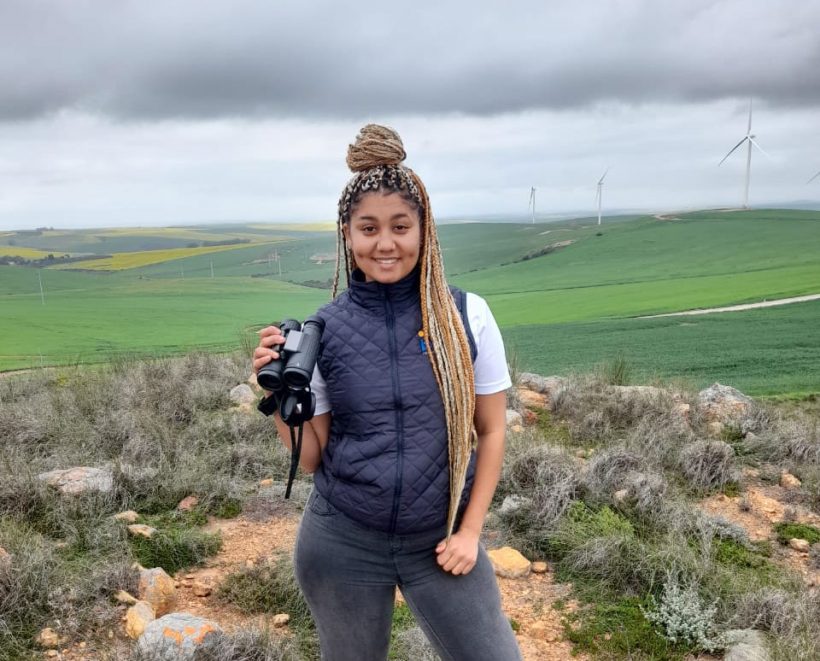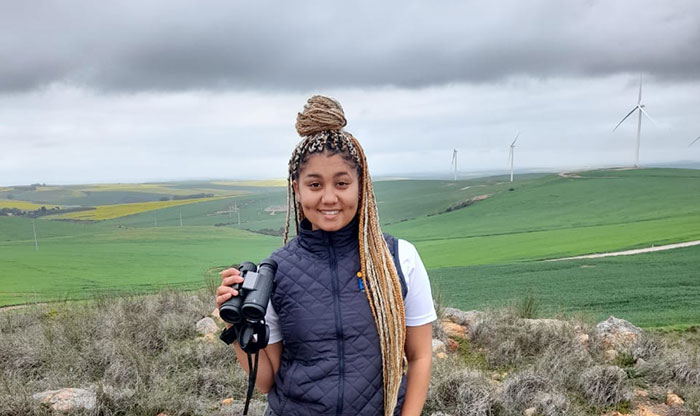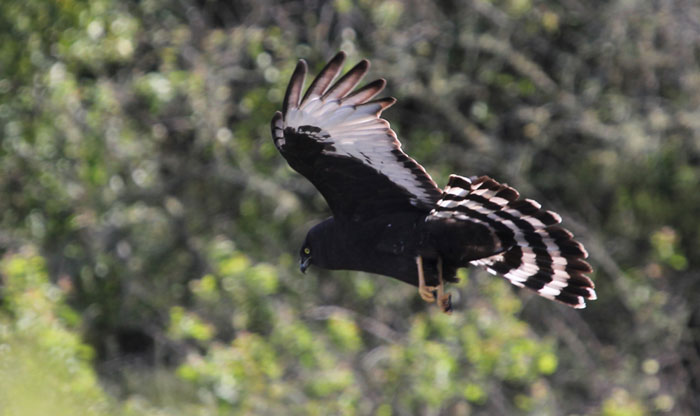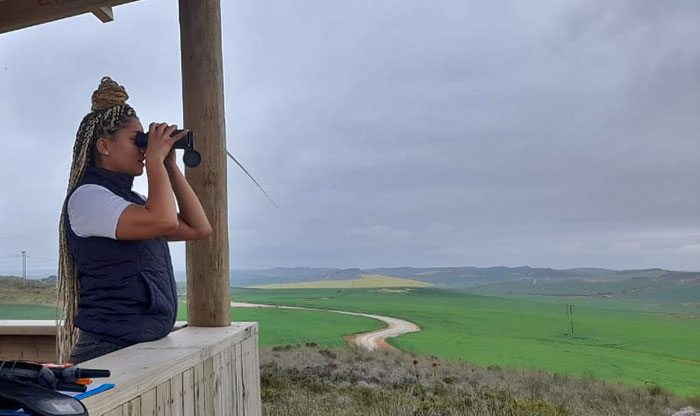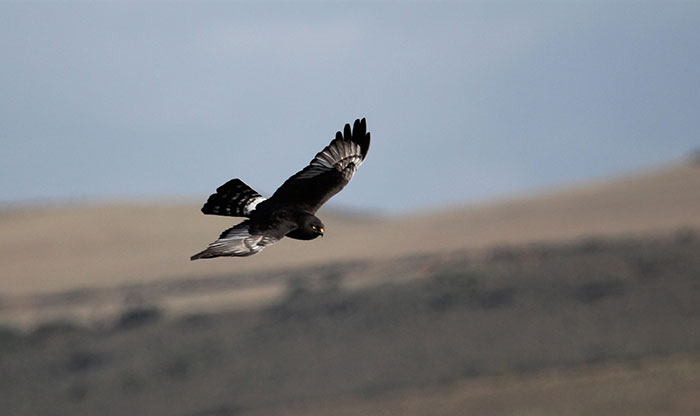“Men may think, this girl can’t do anything, and shouldn’t open her mouth. But I’m the opposite of that.”
This is how 25-year old Clarissa Mars makes a success of working in a male-dominated industry, in a most unusual profession.
Clarissa is Biodiversity Supervisor at the new Excelsior Wind Farm outside Swellendam, owned and managed by BTE Renewables. She is the first person in South Africa to oversee and supervise a shutdown-on-demand programme at a wind farm. Under her supervision, nine observers monitor bird movements around the wind turbines seven days a week, and can demand a turbine’s shutdown should a priority bird species fly into the area.
The spunky Clarissa knew from the age of six that she’d work in conservation, when she saw an animal slaughtered on a farm. “I cried and cried, and couldn’t understand why I was the only one crying. That’s when I thought, I had to go into conservation. Now I love what I do, and I get paid doing it.”
But her role requires strength of character, the kind of strength that the women who marched on the Union Buildings embodied in 1956. “Now I’m aggressive. I tell you something straight. You have to be strong and smart as a woman today working in this sector.”
Above: Clarissa and her team from BTE Renewables
As a result, she’s managed to encourage and bring about attitude changes in her role. Because the Excelsior Wind Farm was the first to test the shutdown-on-demand programme in the country, there was considerable pressure on them. “There were lots of questions at the start on why we should turn off the turbines. And many believed the birds didn’t fly here. Now we can see that’s not true – we’ve had 100 shutdowns since August 2020.”
The programme focuses on protecting Black Harrier, Cape Vulture, Martial Eagle and Verraux’s Eagle (although Clarissa’s personal favourite is the African Hoopoe). In fact, it was through Black Harriers that Clarissa met the Overberg Renosterveld Conservation Trust. “I went to Goereesoe Farm (the property opposite to where the turbines were erected) with Odette (Curtis-Scott) to monitor Black Harriers in 2019. I learnt a lot about them from her. I also learnt about Renosterveld, and was shocked to hear that there’s only five percent left in the world.”
Her job also entails supervising carcass searches under the turbines, and then supporting any mitigation measures required. For example, some bat species are vulnerable to collisions in the summer months. The team is now developing urgent measures to protect these species in time for summer.
Why every species counts
She says, “Whether it’s a priority species or not, I don’t want to see any collisions. When it’s windy, and the Black Harriers fly 80m above the ground, I get very nervous. But we do see that birds generally fly past the turbines. We haven’t lost a single priority species since we started in August last year.”
Clarissa’s strength was fostered by her tough parents, who both worked in the South African Police Service for more than 25 years in the town she grew up in, Riviersonderend. After school, Clarissa studied Nature Management at the Centurion Academy, and in 2018 worked for the City of Cape Town as a field ranger.
She says, “For me, it’s important to conserve wildlife so that future generations can enjoy our natural world. I really love my job, because I love being out in the field, and protecting the birds. So my advice to women would be: If you have a passion for something, you have to simply go for it.”

